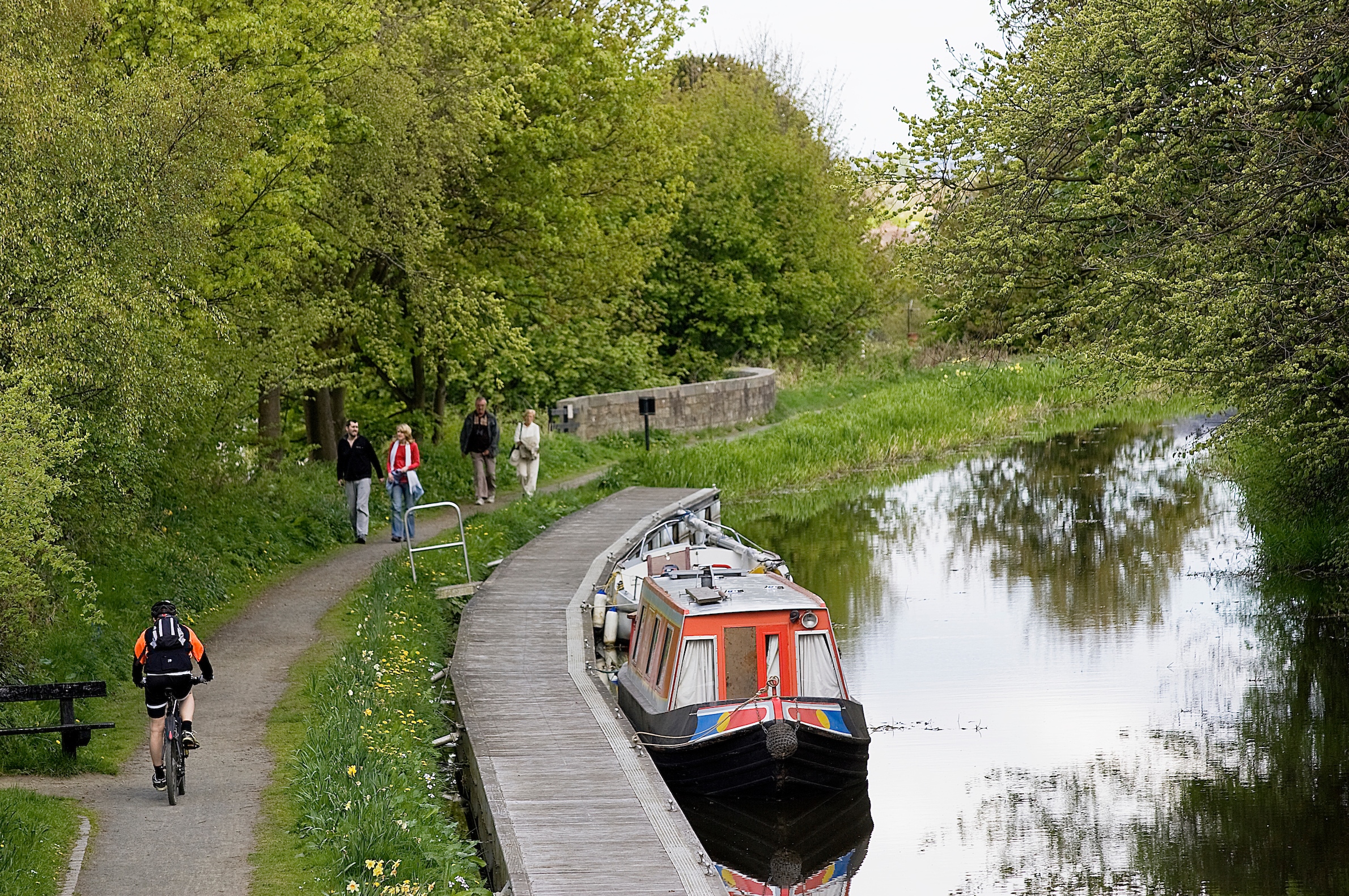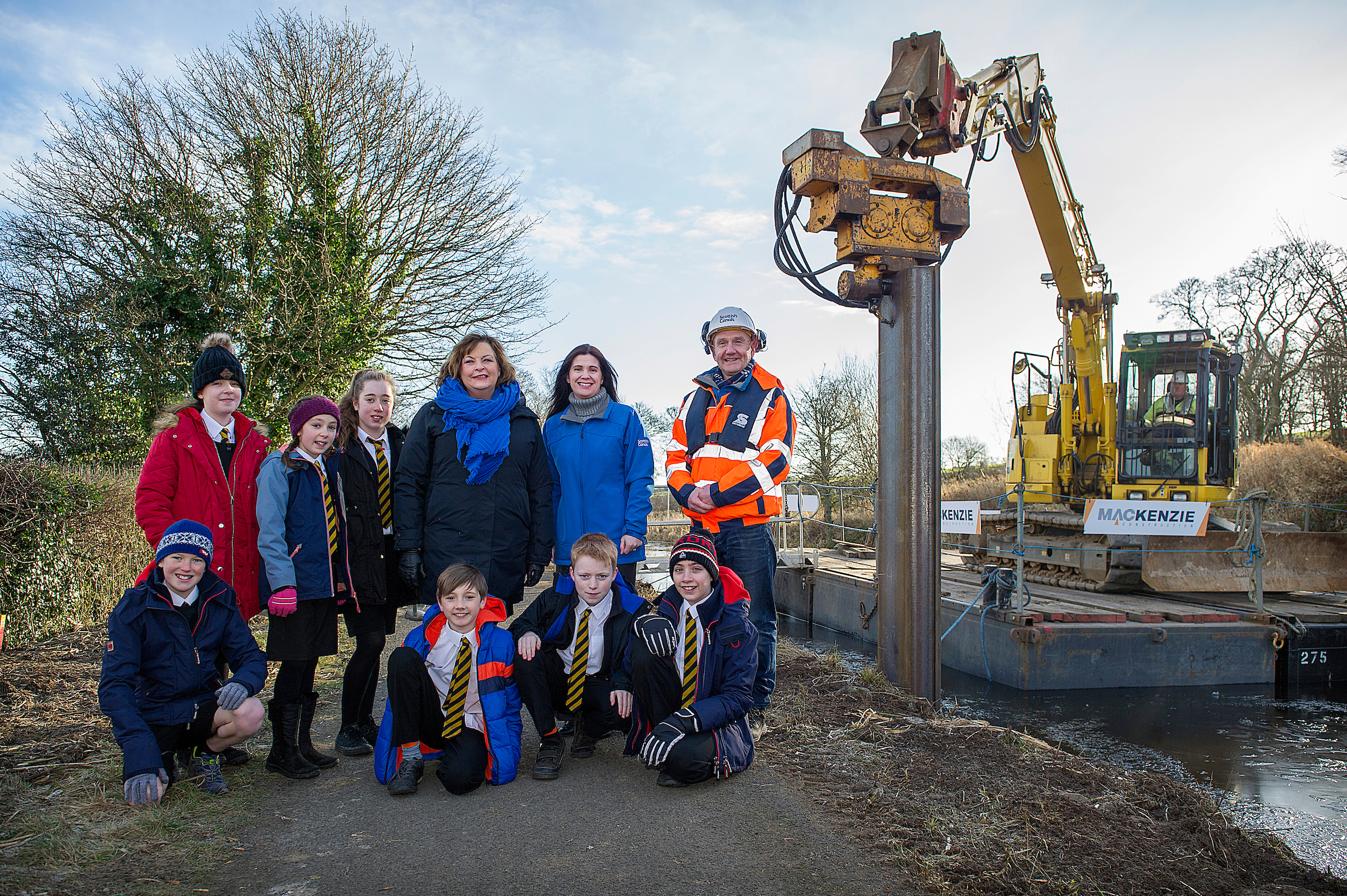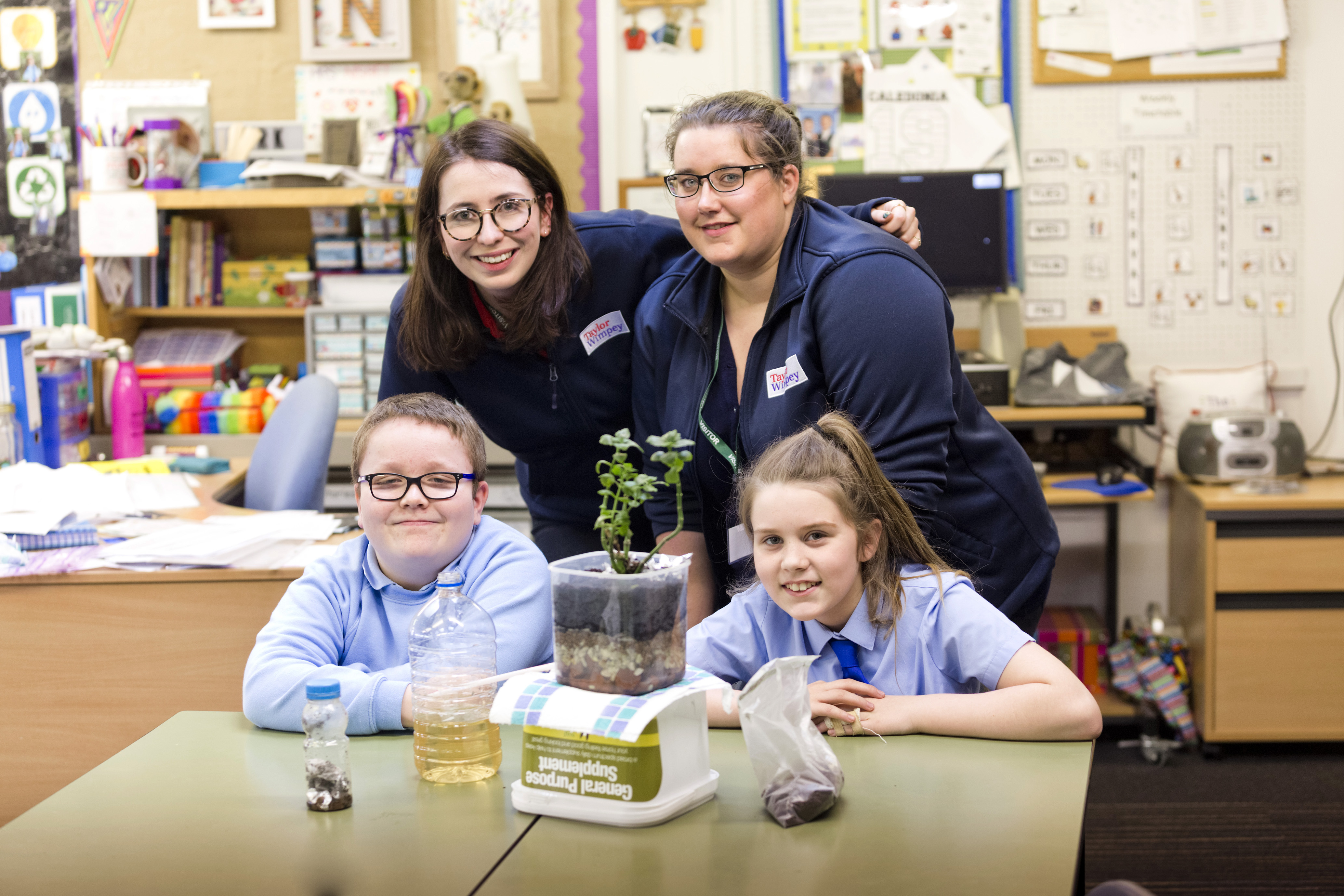Building Briefs – May 1st
- Linlithgow’s Union Canal safeguarded for future generations
The Union Canal at Linlithgow has fully reopened to public access following the completion of engineering work to reinforce its embankments.
The £1 million improvement works, which began in November 2018, involved closing the section of the canal to navigation and pedestrians to allow Scottish Canals to strengthen the embankment.

Part of a Scotland-wide programme of winter maintenance, the Scottish Government-funded Linlithgow embankment works were carried out in two phases. Phase one comprised 160m of sheet piling installed along the canal, 4.5m deep, between Linlithgow Academy and Woodcockdale. Dam structures were operational at both Bridge 45 and Bridge 48 to enable a partial dewatering of the canal.
Phase two involved further sheet piling along the canal at Manse Road East. The result is a strengthened embankment with an improved towpath, four residential and four additional leisure/visitor moorings. The essential works are part of Scottish Canals’ commitment to improving the 200-year-old canal network to offer greater public value.

The improvement works were scheduled following embankment surveys carried out by Scottish Canals in 2017. This saw the water level of the waterway reduced over a five-kilometre stretch, and around 30,000 cubic metres of water drained from the canal.
As a result of the surveys, the embankment works were identified as a priority for Scottish Canals, under its Asset Management Strategy.
- West Dunbartonshire Council hit 2020 emissions target
West Dunbartonshire Council has already met the carbon emission reduction target it was aiming to reach by 2020.
Officers anticipate that the council will now far exceed the 15% reduction they committed to back in 2012.
The council-wide programme of activities to tackle climate change has seen emissions reduce from 32,938 tonnes of CO2 in 2012/13 to 26,433 tonnes in 2016/17.
Projects including LED lighting upgrades, energy efficiency measures at the new Our Lady and St Patrick’s High School building and the addition of domestic hot water heating controls in council houses have all contributed to the reduction.
And across the organisation, officers are continuing to engage in a variety of initiatives to tackle climate change.
Reducing building numbers and replacing with modern energy efficient alternatives, improving standards to new house build insulations and introducing electric cars and vans are just some of the projects which have contributed to the improvement.
Future contracts with the council will also take into account the environmental impact, including reducing single use plastics.
In Clydebank, the council’s £15 million investment in the District Heating Network at Queens Quay is another firm commitment to low carbon technology. When complete, it will provide low carbon heat and hot water - taken from the Clyde - to buildings on the site, with potential for expansion in the future.
The council is also working with Argyll and Bute and Inverclyde councils to create a joint waste treatment contract to ensure no more than 5% of household waste collected by all three will be disposed of into landfill by 2021.
- Customer service award for Bancon
Bancon Homes has been presented with the Outstanding Customer Service award by In House Research.
The firm also retained its Gold Award accreditation, which is based on 90% of its customers saying they would recommend the firm to another person.
- Kilsyth Swimming Pool improvement works completed
NL Leisure has invested more than £300,000 in significant improvements at Kilsyth Swimming Pool.
As well as work to the building, the swimming pool and changing village has been completely upgraded and the reception area has been modernised.
- A82 rock slope improvement project completed
A project to stabilise two sections of rock slope opposite Loch Ness at Wellington Layby on the A82, around seven miles north of Drumnadrochit, has been completed, BEAR Scotland has reported.
The £500,000 project involved engineers carrying out extensive work to a stretch of the rock face above the A82 to help stabilise the slope and mitigate the risk of any material reaching the carriageway.
Teams worked to remove around 400 tonnes of rock from the face to scale back part of the slope, with specialists working from high ropes to install over 2,400 square metres of steel mesh over the new surface which is held in place by 320 anchors drilled into the new slope. If the new anchors were laid end to end, they would reach over 1,200m in length.
The project began in February with temporary traffic lights in place to protect road workers as well as motorists. All traffic management has now been removed and the A82 reopened to both lanes.
- Taylor Wimpey ignites imagination of next generation
As part of Caledonia Primary School’s focus on understanding biodiversity, a team from Taylor Wimpey West Scotland took the opportunity to lead a series of masterclasses for P3, P4, P6 and P7 children, which focussed on the importance of SUDS – Sustainable Urban Drainage Systems – and the role they play within the housebuilding industry.
Brought to life as ‘The Story of Rain’ and the adventures of a raindrop the Primary 3 and 4 children named Dash, the project aimed to spark the imagination of our future technical geniuses.

SUDS project brought to life by pupils from Caledonia Primary School, supported by Taylor Wimpey West Scotland’s graduate Lizzi Smyth and technical management trainee Errin Hendry-Giles
The children compared the old ‘Urban Water Cycle’ with its typical surface water drains with a Sustainable Urban Drainage system, which can be designed with a variety of features such as raingardens, porous paving, green roofs, swales, ponds and wetlands to slow the rainwater down and clean it naturally on its journey back to our rivers.
Taylor Wimpey West Scotland’s technical team have created a fun and interactive project that includes a storybook, activity sheets, a word search and a raingarden experiment, which allows children to explore the features of SUDs and how they are important for improving biodiversity.
With the ongoing construction of new homes at Taylor Wimpey’s development in Broomhouse, the SUDS masterclasses were a great opportunity for Taylor Wimpey West Scotland to give the children an insight into the industry and highlight the relevance of SUDS in a real environment – bringing their teaching to life.

















